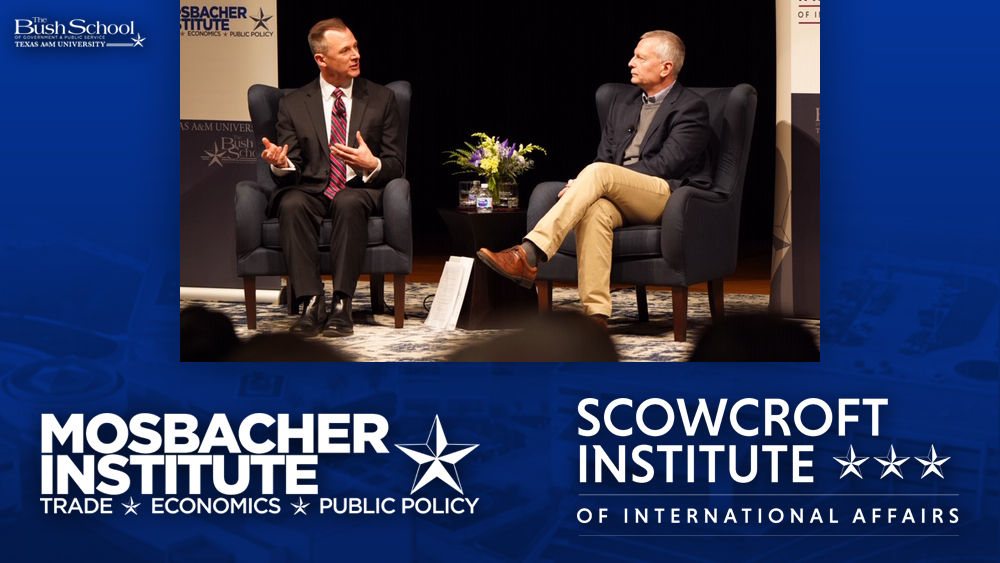
On February 6, 2020, the Mosbacher Institute for Trade, Economics, and Public Policy and the Scowcroft Institute of International Affairs hosted the talk “Reimagining Globalization,” featuring Dr. Dani Rodrik, Ford Foundation Professor of International Political Economy at the Harvard Kennedy School. Rodrik asserted that reimagining globalization has the potential to more widely distribute trade benefits than the current model of hyper-globalization. Key components of a new model would include win-win trade agreements, national autonomy over economic decisions, and domestic policy that institutes robust safety nets and safeguards against “social dumping.” Social dumping is a phenomenon by which trade agreements affect national policies in ways that go beyond tariffs and other barriers to trade found at the border. For example, recent agreements include provisions that affect domestic health and safety standards by harmonizing rules across countries even when countries may have different preferences about health and safety.
Rodrik pointed out that there has always been a backlash against globalization. For example, in the late 18th century, William Jennings Bryan decried the gold standard, a symbol of globalization at the time, and globalization continues to be denounced nearly 125 years later. To solve the current problems caused by globalization, Rodrik suggested that we need a reinvented vision. He said that because it is a fluid institution and can take many forms, its shape is under our control.
In order to redesign an improved and relevant regime, Rodrik asked the following questions: Which market flows should be liberalized? Should rules extend beyond borders? And how should the rules be governed? With these questions as a framework, Rodrik chronologically reviewed three types of globalization: the gold standard regime, the Bretton Woods system, and today’s post-1990s hyper-globalization. In today’s system, he maintained that domestic economies have become servants to the international economy, severely hampering nations’ capacity for equitable growth.
According to Rodrik, the ideal of globalization in the 21st century would realize economic efficiency, distributive fairness, and political accountability. He explained that this system would entail a peaceful-coexistence trade model, where trade agreements are a true win-win. There would be greater domestic management of financial flows as well as a relaxation in labor mobility rules. He also suggested a different system of international governance, one in which each nation has the autonomy to pursue its own domestic policy, rather than being held to a set of norms. Further, governments should have the policy space to devise their own growth strategies. He concluded that a thinner globalization could be more sustainable and, paradoxically, much more beneficial to society overall.
Following the lecture, Dr. Raymond Robertson, Director of the Mosbacher Institute, facilitated a discussion with Rodrik. The topics addressed included the validity of US concerns over Chinese economic policy, the lack of economic vision involved in the Brexit decision, and the need to recognize that driving economic actors likely do not make globally-optimal decisions. Rodrik’s comments exemplified the way in which he skillfully questions conventional applications of economic theories.
Reimagining Globalization can be viewed in its entirety on The Bush School YouTube channel.

